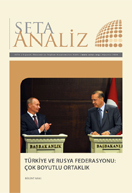A few months before his death in October 2004, the famous French philosopher Jacques Derrida called for "deconstructing the European intellectual construction of Islam."
Having been born in Algeria, which was then under French occupation, and seen both sides of the river, Derrida was referring to the suppression of the Islamic element in the history of the Mediterranean and, by extension, Europe. While the Greeks, the Jews and the Arabs have all shaped this history, only a Euro-Christian memory has reached the modern period. Even the phrase "Judeo-Christian" is a misnomer, as it refers more to the Jewish origins of Christianity than to the role of Jews in European and Mediterranean history.
The same is true, even more so, for Islam. Many conscientious Europeans acknowledge the presence of Islam and Muslims in European life and speak of their importance for the political and cultural future of the old continent. In a meeting I attended last week in Brussels, the importance for Europe of Muslim countries around the Mediterranean was once more affirmed. The same can be said for the extremely dynamic and ever-growing Muslim communities of Europe. Yet we're far from including these actors in a real and serious debate over the future of Europe.
It's interesting to see how discussion of Islam is still tied up with a "fear-factor" in the minds of many Europeans. In 2004, after the European Commission issued a positive report about Turkey's membership progress, Frits Bolkestein, the EU internal market commissioner at the tıme, quoted Bernard Lewis and expressed concern over Europe becoming "Eurabia": "I don't know if it will take this course but if he's [Lewis] right, the liberation of Vienna [from the Ottomans] in 1683 would have been in vain" (The Guardian, Sept. 8, 2004). As Ahmet Yukleyen points out in an excellent essay published in "Insight Turkey" (Vol. 11, No. 1), the market commissioner could have chosen from a number of economic and political reasons to oppose Turkey's EU membership. Instead, he used a clearly cultural-essentialist argument to push Turkey outside Europe. The trouble is that this "pushing out" is not limited to Turkey alone.
Europe is neither monolithic nor homogenous. Its social and intellectual life is as vibrant as anywhere else. European soul-searching for a new identity in the 21st century is in full-swing. The European Union, the largest and most ambitious project in the history of Europe, is faced with enormous challenges. The confusion over Turkey's EU membership is also a result of the confusion over Europe's posturing and self-perception in an age of globalization. Besides its own internal problems, Europe, which wants to forget its own imperial past, still thinks and lives under the shadow of the American empire. Even though Europe has a much longer and wider experience with the Middle East and the Muslim world, for instance, almost all European political actors tune in to Washington before saying anything or taking a bold step. "Let's wait and see what Obama does" seems to be a ubiquitous reality in Europe these days.
Despite these entrenched problems, missing out on Islam is a costly enterprise for both the European and Muslim worlds. The Canadian philosopher Charles Taylor put his finger on the point when he said two years ago that the limits of pluralism in Europe are determined by attitudes of tolerance and intolerance toward Muslims. In other words, modern pluralism goes only as far as the Muslim neighborhood. Anything beyond it would be outside the limits of tolerance and understanding. While other ethnic, religious or cultural identities would be welcome as part of a tolerant European culture, Muslim identity would be seen as violating the norm and upsetting the status quo.
This is a dangerous proposal for both Muslims and Europeans. It may easily slip into the habit of putting Muslims in "mental ghettos" and treating them as "noble savages" at best, to use Rousseau's phrase, and as potential criminals at worst. Plus, such an attitude goes a









